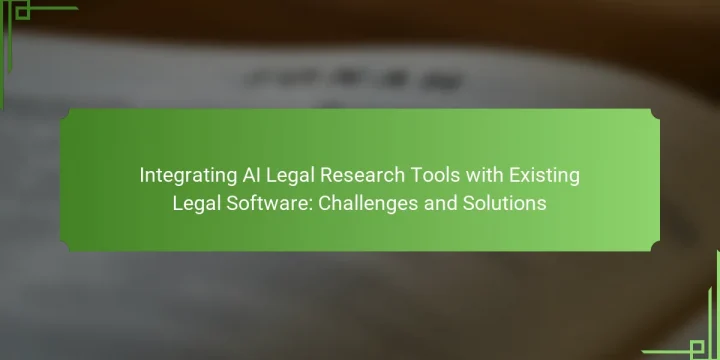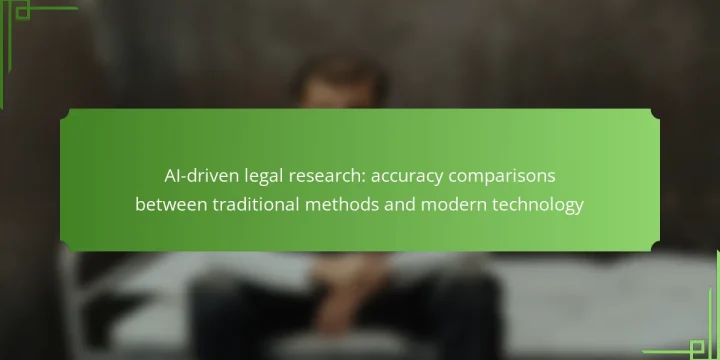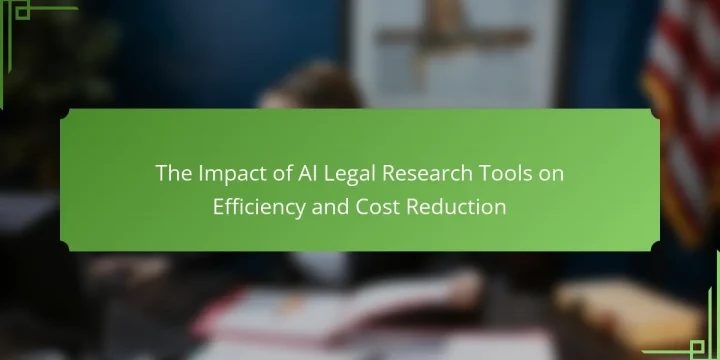
What is Natural Language Processing in Legal Research? Natural Language Processing (NLP) in legal research refers to the application of computational techniques to analyze and interpret legal texts. NLP enables the extraction of relevant information from vast legal documents efficiently. It automates tasks such as document review, case law analysis, and legal drafting. This technology helps legal professionals identify patterns and insights that may not be immediately apparent. For instance, NLP can categorize legal documents and summarize case law. The use of NLP in legal research enhances accuracy and reduces the time spent on manual analysis. Studies indicate that NLP can improve legal research efficiency by up to 70%. How does Natural Language Processing function in the legal field? Natural Language Processing (NLP) functions in the legal field by automating…








